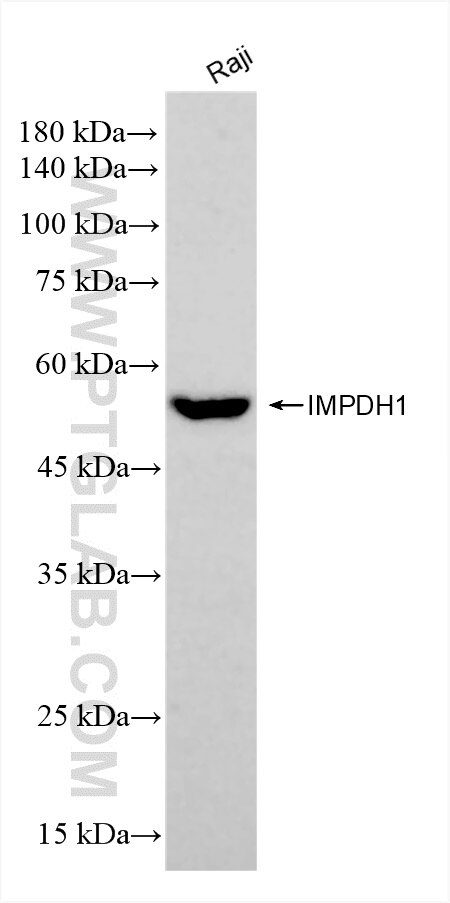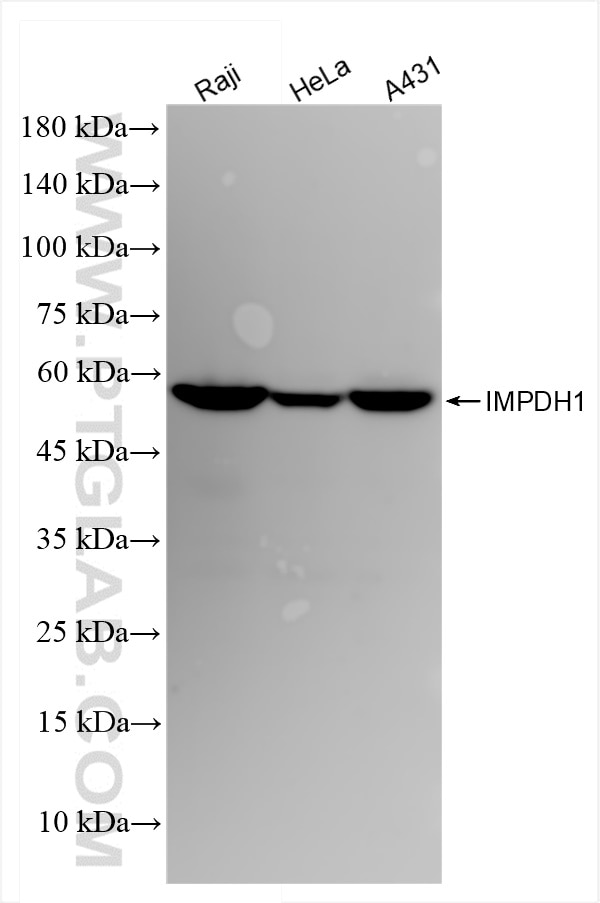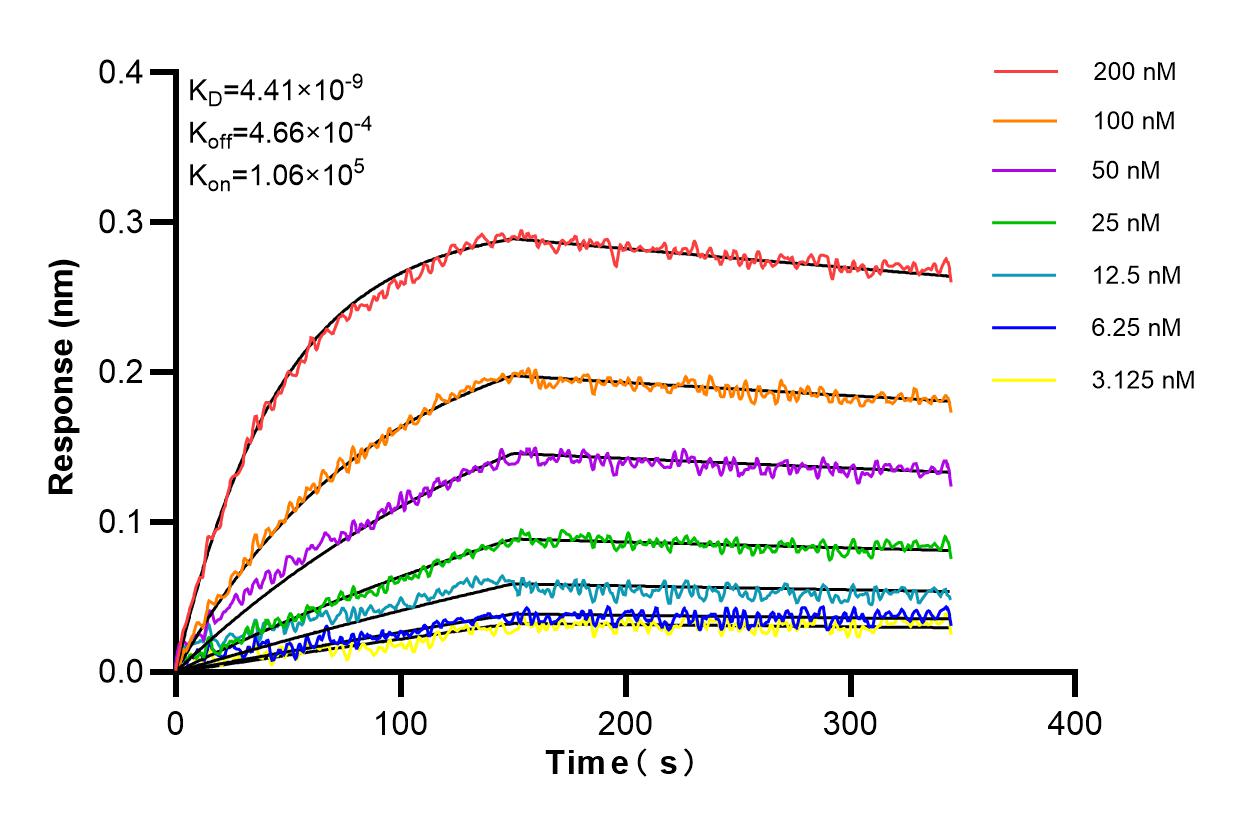Validation Data Gallery
Tested Applications
| Positive WB detected in | Raji cells, HeLa cells, A431 cells |
Recommended dilution
| Application | Dilution |
|---|---|
| Western Blot (WB) | WB : 1:1000-1:8000 |
| It is recommended that this reagent should be titrated in each testing system to obtain optimal results. | |
| Sample-dependent, Check data in validation data gallery. | |
Product Information
84913-1-RR targets IMPDH1 in WB, ELISA applications and shows reactivity with human samples.
| Tested Reactivity | human |
| Host / Isotype | Rabbit / IgG |
| Class | Recombinant |
| Type | Antibody |
| Immunogen | IMPDH1 fusion protein Ag17473 相同性解析による交差性が予測される生物種 |
| Full Name | IMP (inosine monophosphate) dehydrogenase 1 |
| Calculated molecular weight | 563 aa, 60 kDa |
| Observed molecular weight | 53-60 kDa |
| GenBank accession number | BC033622 |
| Gene Symbol | IMPDH1 |
| Gene ID (NCBI) | 3614 |
| Conjugate | Unconjugated |
| Form | Liquid |
| Purification Method | Protein A purification |
| UNIPROT ID | P20839 |
| Storage Buffer | PBS with 0.02% sodium azide and 50% glycerol , pH 7.3 |
| Storage Conditions | Store at -20°C. Stable for one year after shipment. Aliquoting is unnecessary for -20oC storage. |
Background Information
IMPDH1(Inosine-5'-monophosphate dehydrogenase 1) is also named as IMPD1, IMP dehydrogenase 1 and belongs to the IMPDH/GMPR family. It catalyzes the rate limiting step of de novo guanine synthesis and an important target for the development of drugs with both chemotherapeutic and immunosuppressive activity. It may also have a role in the development of malignancy and the growth progression of some tumors. This protein has some isoforms produced by alternative splicing with the molecular mass of 53-65 kDa.
Protocols
| Product Specific Protocols | |
|---|---|
| WB protocol for IMPDH1 antibody 84913-1-RR | Download protocol |
| Standard Protocols | |
|---|---|
| Click here to view our Standard Protocols |


